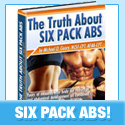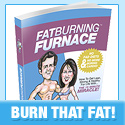First thing to note is that a muscle building diet is not a “normal” diet. Its purpose is to help you put on weight by using a lot of high protein foods. Many people believe the word “diet” to mean cutting down on food or on certain types of food in order to lose weight or lose fat, but this is the incorrect use of the word. The word diet refers to the food choices you make from day to day. So basically what you choose to eat is your diet.
What are the Goals of a Muscle Building Diet?
Simply the only goal of a muscle building diet is to gain quality muscle mass without putting on fat. The following 6 point plan will help you achieve this goal of building muscle without gaining fat.
1. Stick to Your Diet
If you are serious about building muscle and losing fat you’ve got to keep to your diet the whole year round. This means that you should eat exactly the same when you aren’t training as much as when you are really pushing yourself to the maximum. So don’t suddenly switch from chicken breasts to hamburgers, or from eggs to bacon just because you haven’t been training as much recently. Many body builders have an “off season” where they don’t train anywhere near as much as they normally would and give their bodies a rest. But they keep in good shape by keeping to their regular muscle building diet.
If you really want one of your favourite (unhealthy) foods, only include them in your treat days.
2. Plenty of Protein
For every meal you prepare you should ask yourself “Where is the protein?” To put on serious muscle you need to eat around 1.5 grammes of protein for every pound of lean body mass you have. To find out your lean body mass, you must find out what your body fat percentage is then use this percentage to find out how much of your weight is fat. Then simply subtract this from your overall weight.
Don’t use the same source of protein all the time. Mix it up and get a wide variety of protein sources. Most people will get their majority of protein from chicken breasts, but on top of that your body needs low-fat fish, lean steaks, eggs, nuts and seeds, fatty fish, beans and a mixture of dairy products.
When your busy its okay to get you protein from a protein supplement (but stay away from protein meal bars!)
3. Cut Out Junk Food
Junk food contains one type of fat that you want to avoid at costs and keep away from your muscle building diet – trans-fatty acids. They seriously hinder you muscle building.
Whereas “good” fats turn on your muscle building switch, junk foods do the opposite. Junk foods contain a lot of additives that the body simply isn’t designed to process, such as preservative, stabilizers and tenderizers.
These substances are like a poison to the body and cause a process called oxidisation to occur, which increases muscle breakdown at a cellular level. You get enough of this at the gym, so don’t make it worse by eating junk food.
You need to be geared towards countering muscle damage, instead of recovering from the poison of junk foods. Simply if you eat junk foods you will be small and sick. If you eat fresh, natural foods you will be healthy and strong.
4. Eat Regularly Throughout The Day
The majority of people eat a large meal 3 times a day and think that is what the body needs. But for anyone wanting to Build Muscle this isn’t the right way to go about it.
Not many bodies can handle eating just 2-3 large meals a day without getting fat. It is important to eat smaller meals, more frequently throughout the day, which will keep your energy levels up and stop you feeling hungry.
I recommend that you eat every 3-4 hours, which should result in 5-6 meals per day. Since you have to pack a lot into the day, its best to start as early as possible. So your first meal should be consumed no later than 20 minutes after waking up.
It is also important to get an equal amount of your daily protein from each meal. So if you are to eat 200 grammes of protein per day and have 6 meals, each meal should contain around 33 grammes.
The secret is to listen to your body. When you start to feel hungry, your body is telling you it needs food, so give it what it want. You may find that every 3 hours is too much. If so wait until you start to feel hungry before having a meal. You will soon find a routine that works for you.
5. Eat the Foods Your Body Enjoys
If you struggle to break down dairy products, try to cut down on these and get your protein and carbs from another source.
Everyone’s body is different so listen to what yours is telling you. It makes no sense to continue eating foods that your body can’t tolerate or digest.
On the other hand if you find source of protein that works very well for you, try to incorporate is into your diet more so you can get the most benefits.
I can’t tell you what will and what won’t work for you as everyone is different. You need to listen to your body and develop your on Muscle Building Foods for your diet.
6. Know Your Carbohydrates
One of the biggest challenges facing anyone that wants to build muscle is eating the correct types of carbs at the right time. Your aim should be to get at least 2 grammes of carbohydrates for every pound of lean body mass.
So if you are 200 pounds with a 10% body fat, you have 180 pounds of lean weight. Therefore you need at least 360 grammes of carbohydrate per day.
Carbs are what you should be changing if you aren’t progressing in the way you want. So if you aren’t gaining muscle and weight as fast as you think you should then increase your intake of carbs. Or if your gaining weight, but it appears to be fat, cut back on the carbs.
All carbs are not the same and you need to focus on the quality carbs that have a slow release factor, as these are less likely to be stored as fat.
These can be found in foods such as whole-grain bread, oatmeal and sweet potatoes. But if you are really skinny, then you can eat more fast releasing carbs such as potatoes, bananas, cereals, pasta and white rice.
When you eat your carbs is also important, as your body needs them at specific times. These are:
1. Breakfast
2. Pre Workout
3. Post Workout
Around 75% of your carbs should be consumed during these 3 meals.




